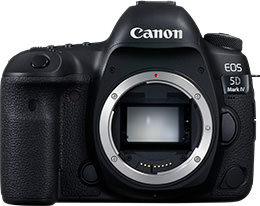Decisions in Landscape Photography: Whether or Not to Include the Sun in the Frame
To include, or not include the sun in the image—that is the question that many photographers find themselves torn over when photographing landscapes. This is yet another decision that can influence a photographer’s signature style. Let’s look at how two different photographers make skillful use of the sun. (Reported by: Yoshio Shinkai, Minefuyu Yamashita)

Including the sun: When done well, the sky sparkles

EOS 5DS R/ EF24-70mm f/4L IS USM/ FL: 28mm/ Aperture-priority AE (f/22, 1/500 sec, EV±0)/ ISO 100/ WB: Daylight
Photo by Yoshio Shinkai
Yoshio Shinkai says:
“Many people who want to take landscape photos featuring the blue sky eventually give up because it involves taking shots in backlight. But don’t forget that including the sun in your photos imparts a lovely sparkle to the sky, creating an even more impactful, compelling image.
When you do include the sun in your frame, just be careful of lens flare, and refrain from looking directly at the sun through the viewfinder. You may want to consider switching to Live View mode or undertaking some other means to protect your eyes.”
Tip: To create the soft effect, defocus at maximum aperture

EOS 5DS R/ EF16-35mm f/4L IS USM/ FL: 21mm/ Aperture-priority AE (f/4, 1/6000 sec, EV±0)/ ISO 100/ WB: Manual
Photo by Yoshio Shinkai
To make the sun look stronger and brighter, narrow the aperture and create a starburst effect, like I did in the first example shot at f/22.
To make the sun look softer in your photos, widen the aperture to somewhere close to maximum. This was what I did for the second example, which was shot at the lens’ maximum aperture of f/4 in order to play up the soft feel of the autumn sunlight.
Excluding the sun: Brings out the colours of scenery when done just right

EOS 5D Mark IV/ EF16-35mm f/2.8L III USM/ FL: 17mm/ Aperture-priority AE (f/18, 1/125 sec, EV+0.3)/ ISO 200/ WB: Auto
Photo by Minefuyu Yamashita
Minefuyu Yamashita says:
“When I photograph landscapes, I tend to use direct lighting or side lighting more often as these portray colours more vividly, and seldom include the sun in my image.
To shoot in backlight and yet exclude the sun from my image, I often hide the sun behind tree branches or other objects, and show just enough of it for the light to function as an accent. You get enough sunlight to spruce up the image, and the colours in the scenery will still be well depicted.
How much of the sun you decide to show, and how you hide/display it affects the overall look of your photograph, so it is very important to fine-tune the image.”
Tip: Shoot with the camera-determined exposure to add colour to the landscape

EOS 5D Mark IV/ EF16-35mm f/2.8L III USM/ FL: 18mm/ Aperture-priority AE (f/18, 1/320 sec, EV-0.7)/ ISO 200/ WB: Auto
Photo by Minefuyu Yamashita
When I do include the sun in my shots (like in the image above), I’m quite wary of blowout and therefore will underexpose the image a little. Hiding the sun with leaves (like in the previous photo) takes away that necessity, and makes it easier to reproduce the colours in the scene without having to tweak the camera-determined exposure.
Receive the latest update on photography news, tips and tricks.
Be part of the SNAPSHOT Community.
Sign Up Now!
About the Author
A monthly magazine that believes that enjoyment of photography will increase the more one learns about camera functions. It delivers news on the latest cameras and features and regularly introduces various photography techniques.
Published by Impress Corporation
Born in Nagano in 1953, Shinkai started travelling throughout Japan with a large-format camera to shoot landscape photography in 1979. Currently, he shoots for a wide range of media, ranging from posters and calendars to travel brochures and photography magazines.
Born in 1979 in Aichi. After gaining experience in jobs such as interior and graphic designing, Yamashita became an independent photographer in 2011. His works have been used in many calendars.






































